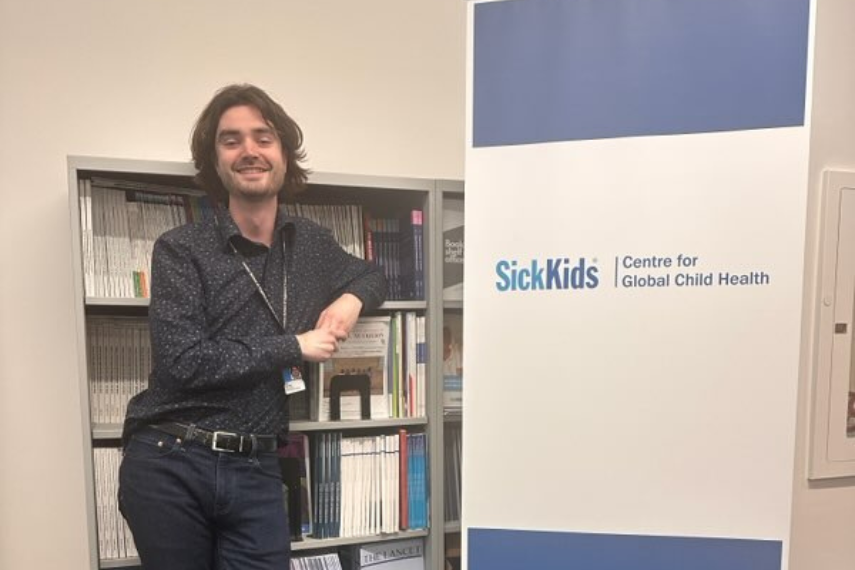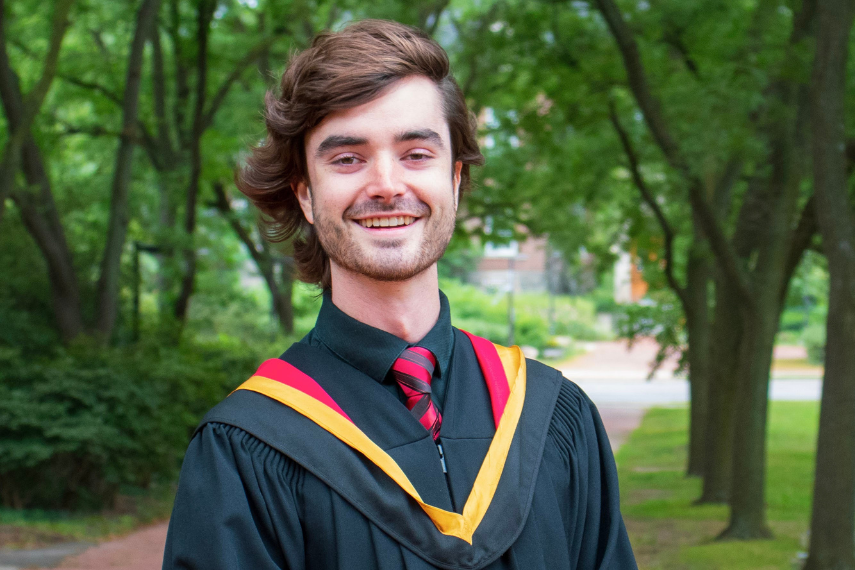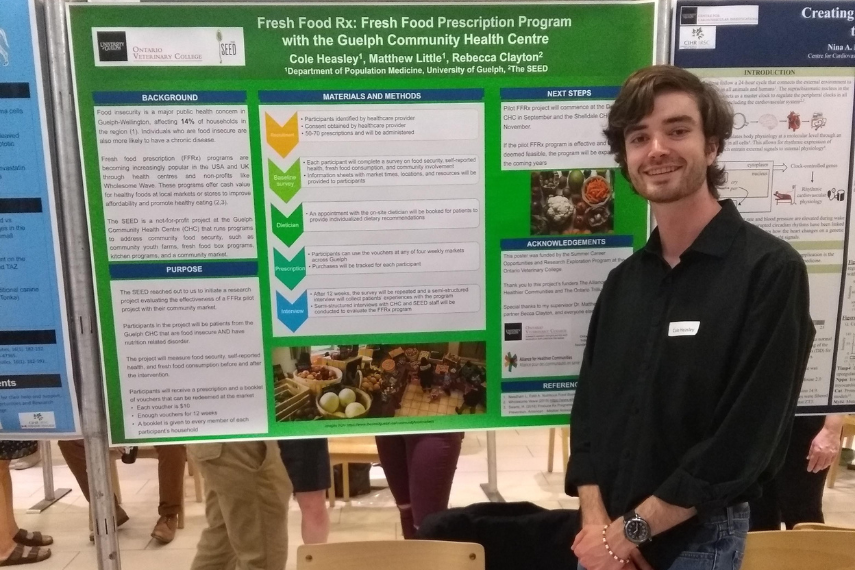Q & A with Chemistry graduate Cole Heasley

Graduating from Biomedical Toxicology in 2020, Cole Heasley was an active student at U of G. Tapping into the coop program, becoming an executive for ToXSA and VP Internal Affairs for CEPSSC. Today Cole works at the SickKids Research Institute.
1 - Why did you choose the U of G?
Guelph was on my list of universities to check out because of its focus on the Sciences, but after taking a campus tour, I knew U of G was where I wanted to go. The campus was beautiful, the sense of community was great, and the food on campus only helped! Additionally, I wasn't sure exactly what I wanted to do when I started university, and I knew I could get a sample of a wide variety of subjects with the first-year science at Guelph, and then narrow in from there.
2 - When did you become interested in science?
I was the kid whose parents would go to the library to borrow DVDs of Bill Nye the Science Guy for me to watch at home. I've always been curious about how the world works and why things happen, and I had a lot of great teachers growing up that fostered that curiosity, so I have definitely always been interested in science.

3 – How did you become interested in Biomedical Toxicology?
Like many people in the program, I found out about toxicology once I started my first year and then switched over. What drew me into Toxicology was how interdisciplinary the major was. There were courses on organic chemistry and molecular biology, to physiology, to statistics and epidemiology, and being able to bring it into focus on a skill set on how toxicants affect systems like our bodies or the environment and how to model that risk. Additionally, there was a very active student group for the program (which I later became a part of) which allowed me to get to know some of the upper year students and learn more about the program (and play on a dodgeball team). It was also a smaller program, so it allowed me to get to know most of the other students in the program and build relationships with the profs who taught several Toxicology courses.
4 – How did the program prepare you for your career?
Having the hard skills of conducting risk assessments, critiquing scientific literature for quality, and knowledge of disease pathways, have been instrumental in my research career. But I also developed a lot of other skills through the program and through being part of TOXSA and CEPSSC such as leadership, organization, and the ever-important time management! Largely the ability to problem solve, and work through an issue step by step, which we often did in tox classes, has been helpful in designing and evaluating aspects of research programs since graduating.
5 – Tell me a little bit about your current job?
I am currently a data analyst in the global child health centre at the SickKids Research Institute. I am working on data from a clinical trial with our project partners in Dhaka, Bangladesh, on investigating the use of a probiotic regime for infants to reduce the risk of severe infections. The role involves mainly data management and statistical analysis and involves a lot of the modelling concepts taught in toxicology.
6 – Describe your academic journey?
Through the coop program and the URAs at Guelph I have been able to be involved in a range of research projects in a variety of departments at U of G and with the provincial and federal governments.
In my final year, I had a summer URA and a two-semester research project to work with the Guelph community health centre to create, pilot, and evaluate a fresh food prescription program for their patients. The project was a great way to get more involved with the broader Guelph community and work on a project from inception to publication (and help a community partner develop a program they were able to continue running after the project).
Immediately after graduating I worked as a research assistant at Toronto Metropolitan University with a research group that works with local Public Health Units on recreational water quality (E. coli levels at public beaches) to determine environmental predictors for water quality to support their programs.
And this past September I completed my MSc in Epidemiology from the London School of Hygiene and Tropical Medicine in the UK, which is a graduate school that focuses on public and global health.

7 – What would do you tell future students about Biomedical Toxicology at Guelph? What would you tell them about the field?
I would suggest getting as involved as possible, the best opportunities are found through talking with professors and other students, so yes study hard but remember to get to know your peers. As well, the more things you try, the more you'll be able to find what you enjoy doing and what your strengths are. Don't be afraid to change things up, the program offers a wide range of career options! I thought I would do lab work as a career, but after working in a few I found I much more enjoyed working with public health and clinical research, doing study design and statistics.
Opportunities often show up in strange places: I first got introduced and interested in epidemiology in a first-year seminar course taught by two PhD students. It was fascinating learning about how so many different biological and social processes intersected, and how that impacted the spread of disease. A few years later, one of the PhD students became a prof at UofG, and he remembered me, so I joined his research group for my URA and undergrad thesis (the project I described above)!
8 – Where do you hope to be in 5 years?
I plan on starting a PhD in the next few years, so in five years I'll hopefully be nearing the end of that!